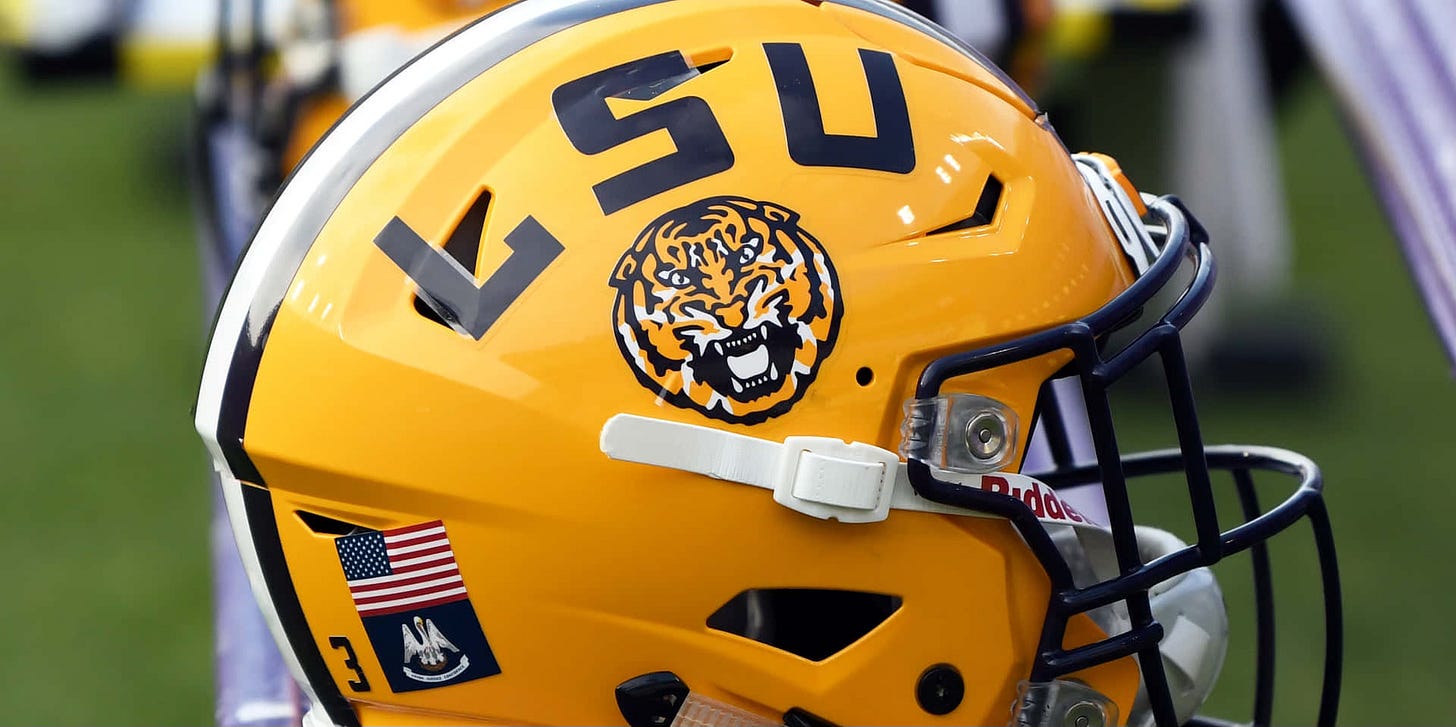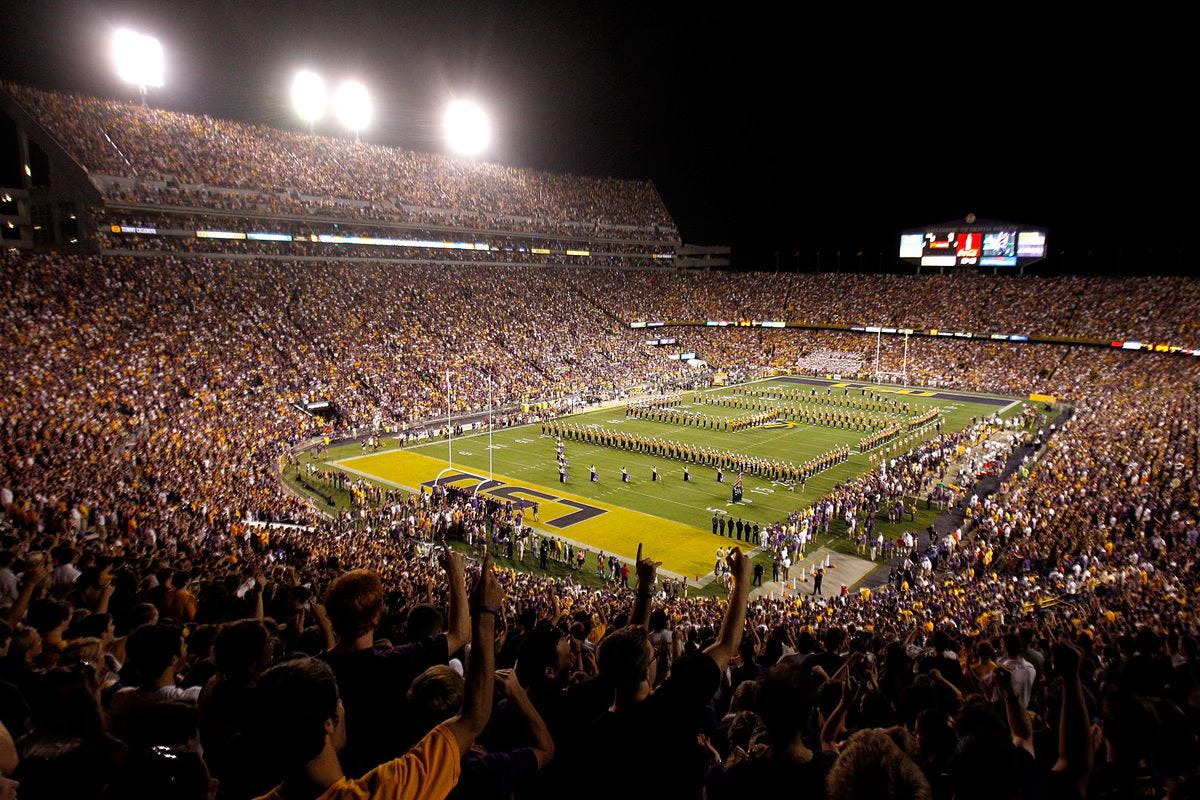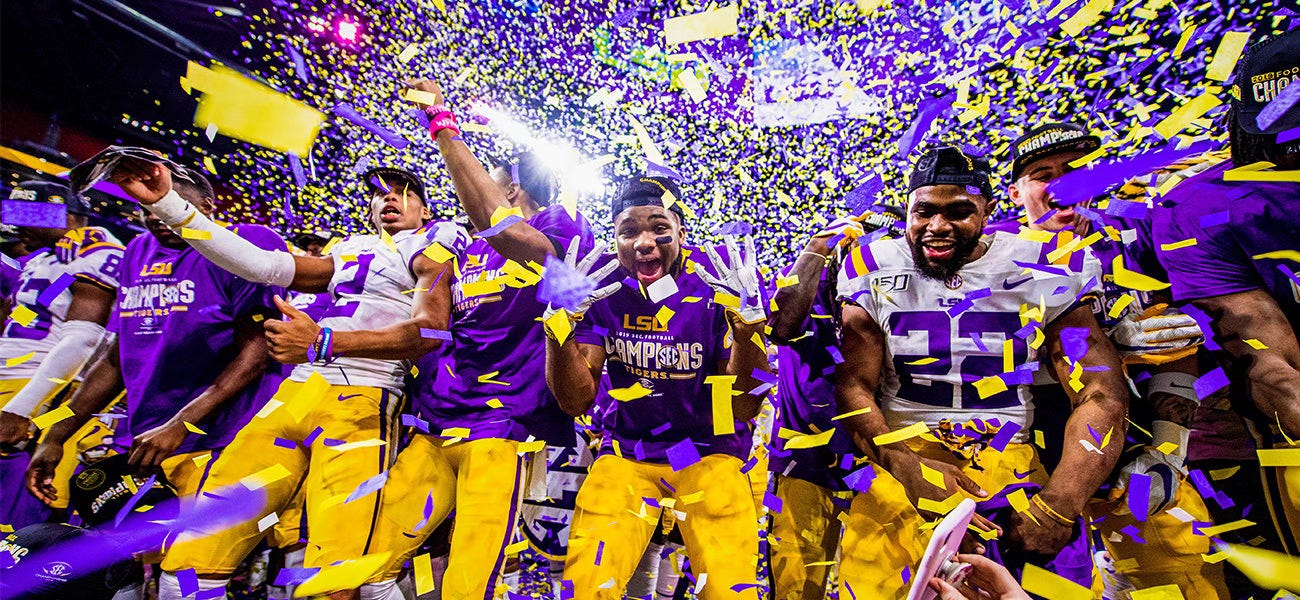10 Surprising Facts You Didn’t Know About LSU Football
When it comes to the pulse of Louisiana, few things command more pride and passion than LSU football. Tiger Stadium, affectionately known as Death Valley, isn’t just a venue—it’s a roaring symbol of hope, unity, and tradition. Whether you bleed purple and gold or are just a curious fan of college football, these 10 lesser-known facts about LSU football will inspire awe and deepen your appreciation for this legendary program.
1. The Founding Era: Humble Beginnings
LSU’s football program began in 1893, making it one of the oldest college football programs in the Southeastern Conference (SEC). The first game was played on November 25, 1893, against Tulane University, resulting in a 34-0 loss. While that initial defeat might seem like a rough start, it was just the spark needed to light the fire of a competitive spirit that would become the hallmark of LSU football. What many don’t know is that this early game was held at Beggars’ Field in New Orleans, a modest location that bore witness to the beginning of one of college football’s most storied rivalries.
The early years were a time of learning and adaptation. The team was composed mainly of students with a passion for the sport but little formal training. The uniforms were handmade, the strategy was experimental, and the rules of the game were still evolving. Yet, these formative years were crucial, laying down the roots for a football culture that would grow into a force to be reckoned with.
2. The Origin of the Tiger Nickname
Why are LSU’s athletes called the Tigers? The answer traces back to Louisiana’s Civil War history. The term “Tigers” was used to refer to several volunteer military units from Louisiana that fought valiantly and earned a fierce reputation during the Civil War. It was only fitting that when LSU's football program began, they adopted the moniker to embody that same indomitable spirit and valor.
The adoption of the name “Tigers” in 1896 was a conscious decision that tied the university’s identity to the state’s proud, if turbulent, history. Over time, this nickname has become synonymous with not just football but the university as a whole. The name represents the school’s relentless pursuit of excellence, not just in sports but in all aspects of student and academic life.
3. The Night Game Legacy
It’s often said that Death Valley is most alive when the sun goes down, and there’s a good reason for that. LSU is known for pioneering the night game experience in college football. The first game under the lights in Tiger Stadium occurred on October 3, 1931, against Spring Hill College. The atmosphere was instantly electric, and the tradition of night games began to grow from there.
Why night games?
The answer is as much about practicality as it is about creating an unforgettable atmosphere. Early Louisiana autumns are notorious for their stifling heat and humidity, making evening kickoffs a strategic choice to keep both players and fans more comfortable. Over the decades, night games at Tiger Stadium have become iconic, with the crowd’s energy described as palpable and intimidating. Visiting teams often say that playing in Death Valley at night is akin to stepping into a cauldron of noise and intensity.
LSU’s home-field advantage has grown into legend, with fans citing various night games as definitive proof. One such moment came in 2007 when LSU faced Florida in what became known as one of the most thrilling games in modern college football history. The crowd noise reached a peak that bordered on the otherworldly as LSU pulled off a dramatic 28-24 comeback win.
4. Mike the Tiger: An Icon Beyond the Game
The live mascot, Mike the Tiger, isn’t just a symbol of school pride; he’s a beloved figure with a rich backstory. The first Mike, originally named Sheik, was purchased in 1936 from the Little Rock Zoo after a fundraising effort spearheaded by the university’s student body. The name Mike was chosen to honor Mike Chambers, the athletic trainer at the time, who played a key role in securing the mascot.
Today, Mike VII resides in a custom habitat that’s as luxurious as it is educational, complete with a waterfall, a pond, and plenty of greenery. His home, located near Tiger Stadium, attracts thousands of visitors each year and serves as a reminder of the importance of wildlife conservation and animal welfare. Mike VII’s playful personality and occasional roars have become a cherished part of game-day traditions, delighting both young fans and seasoned alumni.
The presence of a live tiger as a mascot is a unique aspect of LSU’s culture, setting it apart from other college programs. Not only does Mike bring a tangible sense of school pride, but he also symbolizes the university’s commitment to preserving the wild spirit and heritage of the state.
5. LSU’s Unmatched Band: The Golden Band from Tigerland
LSU’s football games wouldn’t be the same without the Golden Band from Tigerland, whose thunderous notes and precise formations are legendary. Formed in 1893, the band has become one of the most recognized college marching bands in the country, with its members playing an integral role in the game-day experience.
The Golden Band from Tigerland is known for more than just its powerful sound. The band’s performance of “Pregame Salute,” with its distinctive four-note salute and spellbinding “LSU” formation, has become a must-watch for anyone visiting Tiger Stadium. It sets the tone for the game and has been known to make even the most stoic fans emotional.
The band also takes part in the iconic halftime show, often featuring a mix of traditional school songs and contemporary hits. Their rendition of “Hey, Fightin’ Tigers”, first performed in 1959, has become synonymous with school spirit and unity. Every note played by the band echoes the resilience and pride that define LSU football, amplifying the energy that reverberates throughout Death Valley.
6. The Earthquake Game of 1988
This tale is legendary among LSU fans and one of the most talked-about moments in college football. On October 8, 1988, LSU faced Auburn in a nail-biting game that came down to the wire. With only minutes remaining, LSU trailed by a score of 6-0. Quarterback Tommy Hodson, under immense pressure, connected with Eddie Fuller for a game-winning touchdown in the end zone.
What happened next was unprecedented: the eruption of noise from over 79,000 ecstatic fans was so intense that it registered as a legitimate earthquake on a seismograph in LSU’s Howe-Russell Geoscience Complex. This legendary play has since been etched into the annals of college football history, a testament to the raw passion of LSU’s fan base and the unparalleled atmosphere of Death Valley.
This “earthquake game” has become a badge of honor for LSU, showing that Tiger fans don’t just support their team—they make history with them. It also serves as a reminder of the electrifying atmosphere that opponents can expect when stepping onto the field in Baton Rouge.
7. The History-Making 2019 Season
When discussing LSU football, it’s impossible not to mention the 2019 season—a year that forever cemented LSU’s place in college football greatness. Coached by Ed Orgeron and led by quarterback Joe Burrow, the Tigers didn’t just win games; they dominated them, showcasing an offensive prowess never seen before in the program's history.
LSU finished the season undefeated with a perfect 15-0 record, capturing the national championship by defeating the Clemson Tigers 42-25 in the College Football Playoff (CFP) National Championship. What many don’t realize is that this victory was not just significant for LSU but was also monumental for college football history. The 2019 LSU team is widely considered one of the greatest college football teams ever, breaking numerous records, including:
Most points scored in a season (726 points)
Most points in a single season by a Heisman winner, with Joe Burrow scoring 60 touchdowns
Most passing yards in a national championship game, with Burrow throwing for 463 yards and 5 touchdowns
Joe Burrow’s Heisman Trophy win was another key highlight, as he delivered an emotional acceptance speech that resonated with fans across the country. The win marked LSU’s first Heisman since Billy Cannon in 1959, bridging the gap between different generations of Tiger supporters. Burrow’s speech emphasized the spirit of community and unity that characterizes not just LSU but all of Louisiana. His words galvanized support for the region, drawing attention to the resilience and camaraderie that Louisiana is known for.
The 2019 team’s achievement wasn’t just a triumph for LSU; it was a celebration for the entire state, showcasing the grit, tenacity, and pride embedded in Louisiana culture.
8. Death Valley’s Record Attendance
Tiger Stadium isn’t called Death Valley for nothing. Known as one of the most intimidating venues in all of college football, it boasts a seating capacity of 102,321, making it the sixth-largest stadium in the NCAA. However, it’s not just the size that makes it formidable—it’s the noise and the unrelenting energy of the fans that create an atmosphere unlike any other.
One record-breaking night came on October 8, 2022, when LSU faced off against the Tennessee Volunteers. This game drew a staggering attendance of over 102,321 fans, pushing the stadium to its absolute limit. While the Tigers fell short that evening, the sheer number of attendees and the resounding cheers once again affirmed Tiger Stadium's status as a fortress for LSU football.
Visiting players and coaches frequently describe the stadium as deafening, with many claiming that communication on the field is nearly impossible. This has been confirmed through various accounts, with players admitting they’ve had to resort to hand signals and simplified play-calling just to keep up with the pace and noise. Death Valley is more than just a name; it’s an experience that has to be felt to be truly understood.
9. A Winning Streak That Stood the Test of Time
From November 10, 2007, to November 10, 2018, LSU held the nation’s longest non-conference home winning streak, amassing 49 consecutive wins. This incredible run underscored the consistency and strength of the program under different head coaches, including Les Miles and Ed Orgeron.
The streak finally came to an end in 2018 when LSU fell to Alabama, but the legacy of that period remains significant. The Tigers’ ability to defend their turf in Death Valley speaks volumes about their resilience and the unwavering support they receive from their fans. This non-conference winning streak also highlighted the strategic prowess of the coaching staff and the athleticism of the players during that era.
This winning streak was a testament to LSU’s longstanding tradition of playing fearlessly, especially when representing their home field. It was during these years that Death Valley solidified its reputation as a place where other teams’ dreams go to die—a powerful reminder that at LSU, football is more than a game; it’s a way of life.
10. LSU’s National Championships
While many fans know about LSU’s recent national titles, not everyone is aware of the full scope of the program’s championship history. The Tigers claim four recognized national titles: 1958, 2003, 2007, and 2019. Each of these titles holds a unique story that reflects the evolution of LSU football.
1958: Coached by Paul Dietzel, the Tigers secured their first national title with a perfect 11-0 season, capped off with a 7-0 victory over Clemson in the Sugar Bowl. The team’s star, Billy Cannon, became a household name and later won the Heisman Trophy in 1959.
2003: Under Nick Saban’s leadership, LSU clinched its second national championship by defeating Oklahoma 21-14 in the Sugar Bowl, which was also the BCS National Championship Game. This win was a turning point that re-established LSU as a force in college football and showcased the school’s ability to compete at the highest level in the modern era.
2007: The 2007 season was a rollercoaster, marked by dramatic games and last-minute victories. Coached by Les Miles, LSU became the first two-loss team to win a national championship, defeating Ohio State 38-24 in the BCS National Championship Game. The season demonstrated LSU’s tenacity and ability to thrive under pressure, further solidifying their reputation as a team that could rise to any challenge.
2019: The crown jewel of LSU’s national championships, the 2019 season was unparalleled in its dominance. Led by Joe Burrow, the Tigers not only won but rewrote record books, defeating seven top-10 teams throughout the season. The national championship win against Clemson was a culmination of skill, strategy, and relentless ambition, embodying the best of what LSU football represents.
Conclusion: The Heartbeat of Louisiana
LSU football is more than just a sport; it’s a unifying force that binds the people of Louisiana together. From the electric atmosphere of Death Valley to the heart and soul of Mike the Tiger, every facet of the program is steeped in tradition, pride, and a fighting spirit. Whether it’s the legacy of the 2019 team, the roar that registers as an earthquake, or the band playing the iconic “Pregame Salute,” LSU football embodies the resilience and passion of Louisiana itself.
If you love this deep dive into LSU football and its unique history, be sure to subscribe, share this post with your fellow Tigers, and connect with us for more stories that celebrate Louisiana’s rich culture and traditions. Geaux Tigers!














